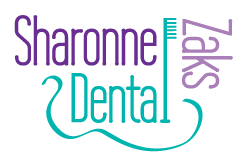implants
One single tooth; in this case an artifical crown is attached using a joining piece called an ‘abutment’.
Several teeth: either individual crowns can be made on each tooth or a bridge joined together over the top.
All teeth: either a fixed bridge can be made over the implants or clips can secure a removable denture tightly to the implants.
Advantages of implants
- Can take much more biting load than dentures
- Prevent bone being lost in the jaw in the area of the missing tooth/teeth, which can
- Help to preserve the neighbouring teeth and prevent loosening of these teeth
- Helps prevent collapse/hollowing of the cheek that occurs after extraction
- The most comfortable replacement of a missing tooth; way more than dentures
- Do not require cutting or shaping of healthy neighbouring teeth like bridges do
- Do not require special cleaning products as dentures and bridges do; they are cleaned like normal teeth
- May prevent gum recession
- Look excellent
Cases not suitable for implants
- Children younger than 17 years as the bones are still changing and growing
- If there is not enough bone (quality or quantity). Now bone can be added back in certain situations through grafting
- Pregnancy, as the medications required or a general anaesthetic if needed may risk the baby’s health
- Alcohol or drug abuse, making people unable to comply with instructions or keep the implant clean
- Smoking: not a complete exclusion however the risk of failure and complications goes right up as healing is impaired
- Uncontrolled diabetes which increases the risk of infection and healing delays
- Psychological illness; patients may not be able to comply with instructions
- High dose chemotherapy for cancer: impairs healing
- Diseases affecting bones: eg osteoporosis, long term steroid use and more. All increase the risk of failure of implants
The planning process for implants
Careful planning is critical for success with implants and begins with a throrough history:
1) Medical and dental histories:
The success of the implant and the recovery after its placement are strongly influenced by your general and dental health. The following conditions are especially relevant to plan for and discuss when considering implants:
- Heavy bleeding when injured/after surgery in the past
- Rheumatic fever
- Any blood disorder eg haemophilia
- Heart disease or previous surgery
- Allergies to medications eg antibiotics
- Reactions to anaesthetics in the past
- Any regular medication taken and its effects
- Any ‘blood thinning’ medication eg aspirin,warfarin
- Any bisphosphonate medication
- Previous radiotherapy to the head/face
- Any herbal remedies or supplements; may can influence bleeding
2) Examination and diagnostic tests:
A thorough dental exam is the next step; any dental issues need to be addressed before implants can be placed. For example, gum disease needs to be stabilised for implant success and any broken or decayed teeth need to have their shapes finalised. This allows the correct bite to be created when building the implant crown. If a grinding or clenching habit is identified it could threaten the implant and needs to be addressed first. This may influence the strength of the material chosen to rebuild the tooth and uncover the need for a protective guard (‘splint’) to be worn at night.
3) Referral:
At the most appropriate time for your situation I refer you to a gum specialist or oral surgeon for the assessment and placement of the implant itself. Photos, x rays, CT scans of the jaws and dental casts of the mouth are usually required to plan the best approach.
Caring for your implants:
Just like with natural teeth, plaque (a sticky bacterial coating) builds up on implants which can lead to gum inflammation and infection around the implant. The same care and attention with cleaning as the natural teeth is required for implants. Periodic review and cleaning in the surgery is essential to maintain them.
